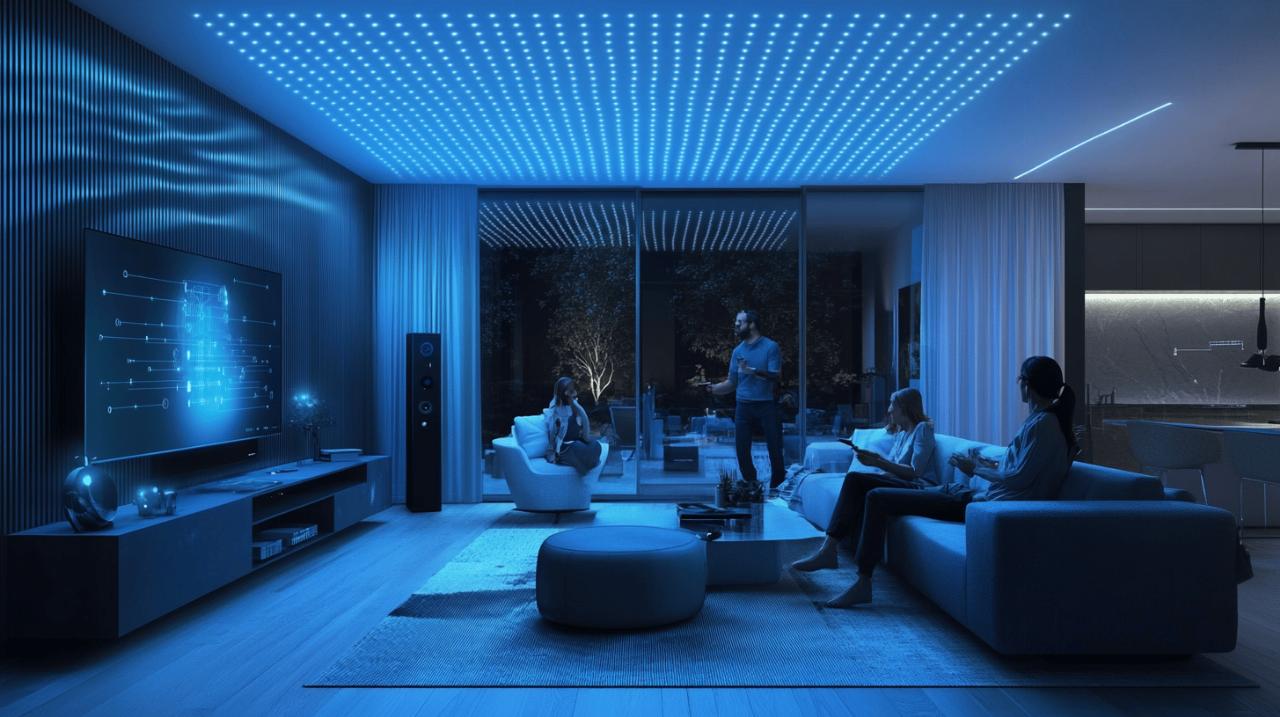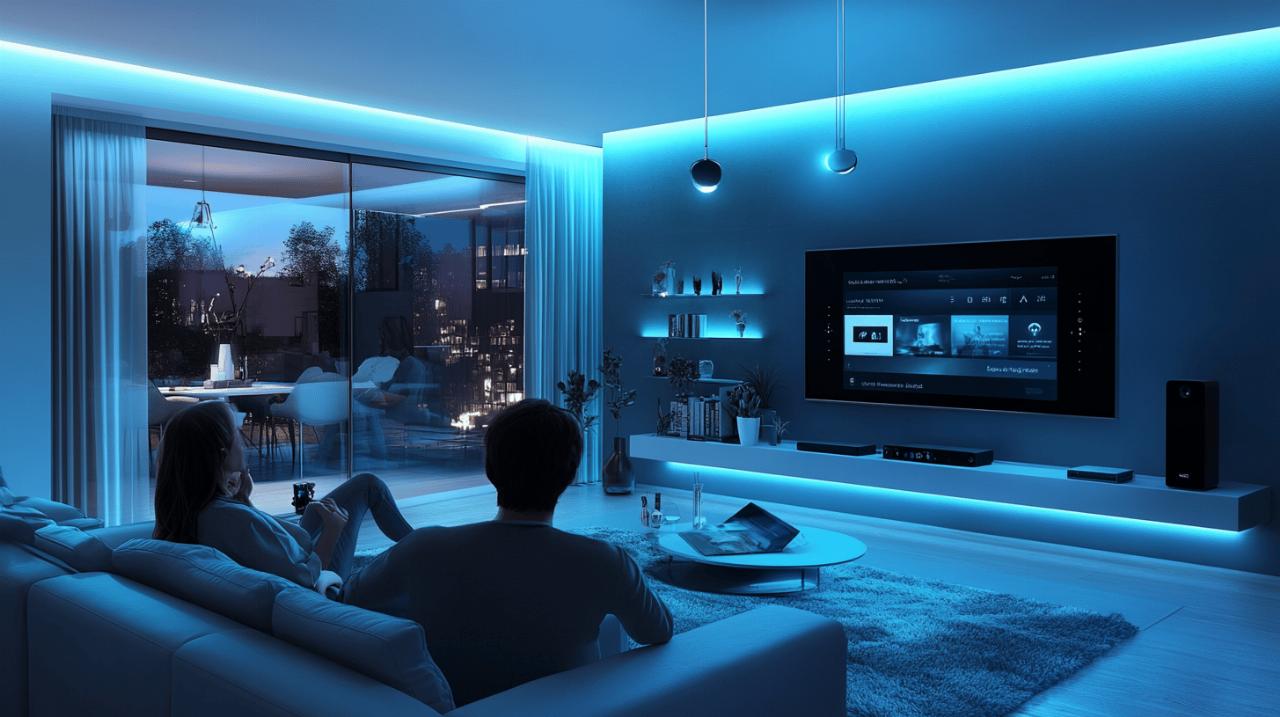Smart homes are rapidly evolving, bringing unprecedented levels of convenience, efficiency, and security to modern living spaces. These innovative technologies are transforming everyday routines through intelligent automation and seamless connectivity.
Revolutionary smart home innovations transforming daily life
The global smart home market is experiencing remarkable growth, projected to reach $135 billion by 2025 and expand at an annual rate of 15%, with over 500 million connected households expected by 2028. This surge reflects how deeply integrated these technologies have become in our daily lives, from energy management to personalized automation.
Voice-activated systems redefining convenience
Voice assistants like Amazon Alexa, Google Assistant, and Apple Siri have revolutionized how we interact with our living spaces. These AI-powered systems now control lighting, temperature, security, and entertainment through natural language commands. The latest voice-activated technologies feature more intuitive responses and can learn user preferences over time. Smart lighting systems such as Philips Hue allow control via voice commands while offering energy-saving features, you can discover on monkeygarden.com various innovative technologies enhancing modern homes in 2024.
Integrated security solutions enhancing home protection
Modern smart security systems combine video doorbells, cameras, motion sensors, and smart locks to create comprehensive protection networks. AI-driven security cameras can now differentiate between normal activity and potential threats, reducing false alarms while maintaining vigilance. Studies show areas with AI-enabled security networks have experienced burglary rate reductions of up to 35% in suburban neighborhoods. These systems offer remote monitoring capabilities, allowing homeowners to check their property from anywhere and receive real-time alerts when suspicious activity is detected.
Next-generation technologies elevating modern living spaces
 The smart home market continues its remarkable expansion, projected to reach $135 billion by 2025 and grow at an annual rate of 15% to encompass over 500 million connected households by 2028. This rapid growth stems from breakthrough innovations transforming our living spaces into intelligent environments that enhance comfort, efficiency, and security. The emergence of the Matter standard represents a significant milestone for device interoperability, enabling seamless connectivity between products from diverse manufacturers. This cross-brand harmony eliminates previous compatibility barriers while AI-powered assistants become increasingly intuitive, delivering personalized automation tailored to individual preferences. Smart home technology also prioritizes advanced security features, with AI-driven cameras and biometric locks providing robust protection for modern residences.
The smart home market continues its remarkable expansion, projected to reach $135 billion by 2025 and grow at an annual rate of 15% to encompass over 500 million connected households by 2028. This rapid growth stems from breakthrough innovations transforming our living spaces into intelligent environments that enhance comfort, efficiency, and security. The emergence of the Matter standard represents a significant milestone for device interoperability, enabling seamless connectivity between products from diverse manufacturers. This cross-brand harmony eliminates previous compatibility barriers while AI-powered assistants become increasingly intuitive, delivering personalized automation tailored to individual preferences. Smart home technology also prioritizes advanced security features, with AI-driven cameras and biometric locks providing robust protection for modern residences.
Energy management platforms optimizing resource usage
Smart energy solutions stand at the forefront of home automation innovation, offering substantial efficiency improvements and cost savings. Smart thermostats from brands like Nest and Ecobee learn user preferences to automatically adjust temperatures, reducing energy consumption while maintaining comfort. These systems can be controlled remotely via smartphone apps, allowing homeowners to manage climate settings from anywhere. The integration of renewable energy sources, particularly solar power with battery storage systems, moves modern homes toward energy independence—potentially achieving 90% grid independence in optimal conditions. A typical 2,000-square-foot residence might require a 10-12kW solar system paired with a 13-15kWh battery, generating annual savings between $1,000 and $1,500 in sun-rich regions. Smart water management systems like Flo by Moen and Phyn Plus monitor usage patterns, detect leaks, and automatically shut off water supplies when necessary, preventing waste and potential damage. Edge computing technology enhances these systems by processing data locally, improving response times while maintaining privacy.
Intelligent appliances creating seamless living experiences
Connected appliances represent a fundamental shift in how we interact with our homes, creating unprecedented convenience and functionality. Smart kitchen appliances from manufacturers like Samsung and LG offer remote control capabilities, self-diagnostic features, and usage pattern optimization. These devices automatically adjust operations based on learned behaviors, reducing energy consumption while improving performance. Voice-activated assistants including Amazon Alexa, Google Assistant, and Apple Siri serve as central control hubs for managing lighting, temperature, security, and entertainment systems through natural language commands. AI-powered predictive automation represents the next evolution, with homes anticipating needs by learning from habits—adjusting environments before residents even make requests. Health-centric smart technologies monitor indoor air quality metrics including CO2, temperature, humidity, particulate matter, and volatile organic compounds (VOCs), while smart purifiers automatically maintain optimal conditions. Studies demonstrate that mechanical ventilation systems can reduce VOCs by up to 25% and particulate matter by 50%. The bedroom becomes a wellness sanctuary with smart sleep technology adjusting conditions for optimal rest—a technology already embraced by over 35% of Americans, with 77% reporting improved sleep quality. For aging populations, voice-controlled systems and automatic emergency response features increase independence while reducing emergency response times by approximately 20%.







